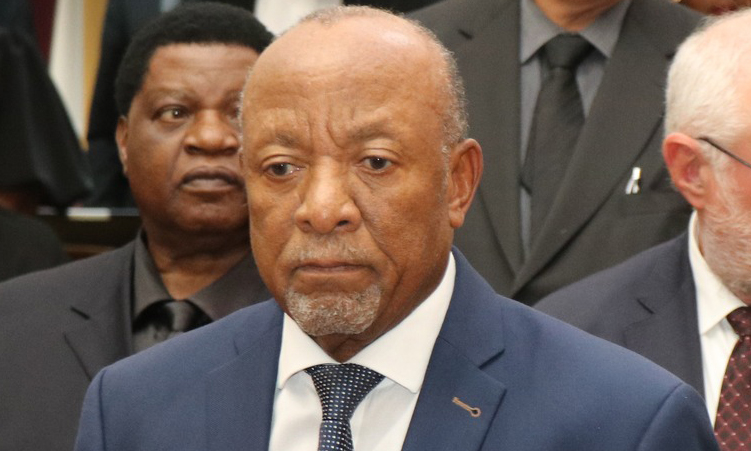President Nangolo Mbumba has affirmed his commitment to the rule of law and independence of the judiciary in Namibia.
Speaking at the official opening of the Office of the Judiciary’s legal year yesterday, Mbumba described the rule of law as an important constitutional anchor of Namibia’s democracy.
“The drafters of the Namibian Constitution were very clear on the need to entrench the doctrine of the separation of powers [between the executive, legislature and judiciary] in order to safeguard our democratic institutions and principles,” Mbumba said.
“This is a doctrine we cherish, and, as president, I too will continue to reaffirm, as our late president did during his tenure, the doctrine of the separation of powers and safeguard its continuous application in practice,” he stated.
Mbumba said it is important to maintain a collaborative spirit between the executive, legislative and judicial branches of the state, while respecting their distinct constitutional mandates.
“This relationship is mutually supportive and must not be misconstrued as interference,” he said.
Mbumba was addressing judges, lawyers and other role-players in the judicial system at the Supreme Court in Windhoek.
He said it is important that the courts and judicial staff should be able to perform their duties without unwarranted pressure or influence from any quarter of society.
It is disheartening to observe that the judiciary is sometimes subjected to unjustifiable criticism for its decisions, Mbumba continued.
Unjustifiable criticism of judicial officers could become a hindrance to the effective exercise of judicial functions, the president said.
He urged Namibians to desist from actions that could be tantamount to interference with the work of the judiciary.
“The rule of law is essential in the preservation and advancement of our democracy, unity of the nation and socio-economic development,” Mbumba said.
He said the judiciary plays an influential role as custodians of the core values of society and of the rule of law, and that it should therefore be led by men and women who hold themselves to the highest ethical standard of conduct.
With Namibia set to hold presidential and National Assembly elections this year, the judiciary should, as an indispensable organ of the state, also play its constitutional role to ensure the seamless holding of elections that are free and fair, Mbumba said as well.
The executive, legislative and judicial organs of the state should understand their core value is to improve the lives of Namibian citizens, on whose behalf they are exercising authority, Mbumba said.
“The Namibian people are the sovereigns and they have the power to judge our performance and decide whether they would want us to continue working with them or not,” he said.
“This is a crucial year and therefore we cannot have a ‘business as usual’ approach,” he continued.
“I urge every member of the judiciary and the legal fraternity at large to ensure that justice reaches all Namibians and that the judiciary contributes tirelessly to our collective welfare and the betterment of Namibia, living up to the expectations of our citizens.”
Stay informed with The Namibian – your source for credible journalism. Get in-depth reporting and opinions for
only N$85 a month. Invest in journalism, invest in democracy –
Subscribe Now!










